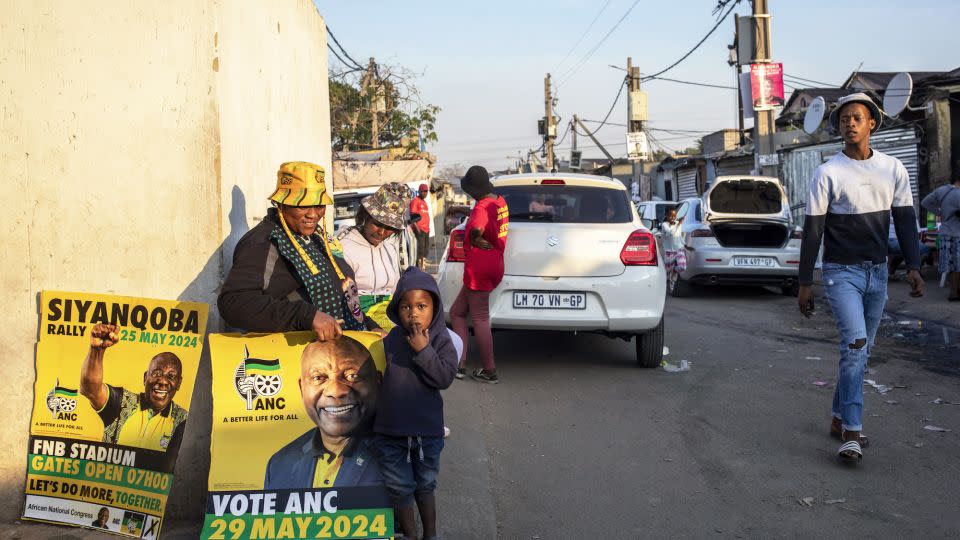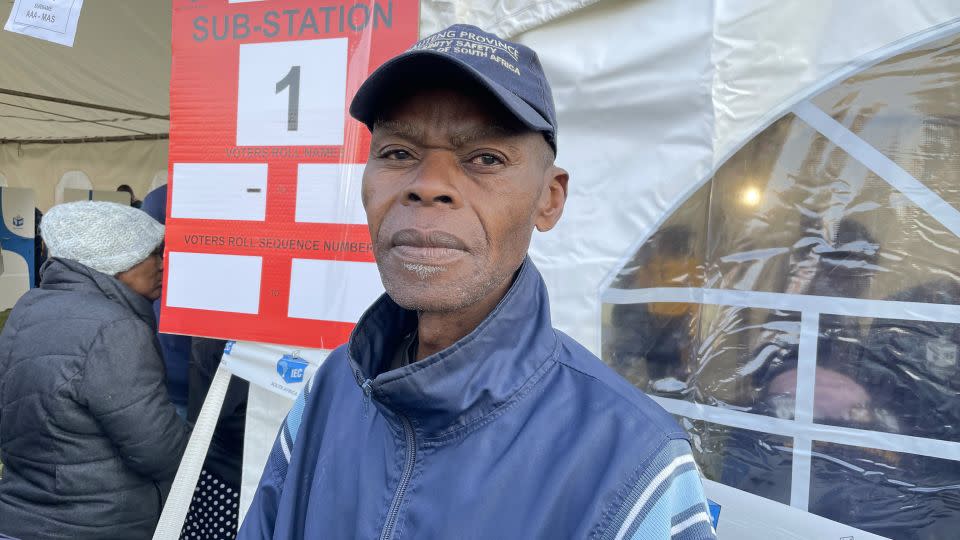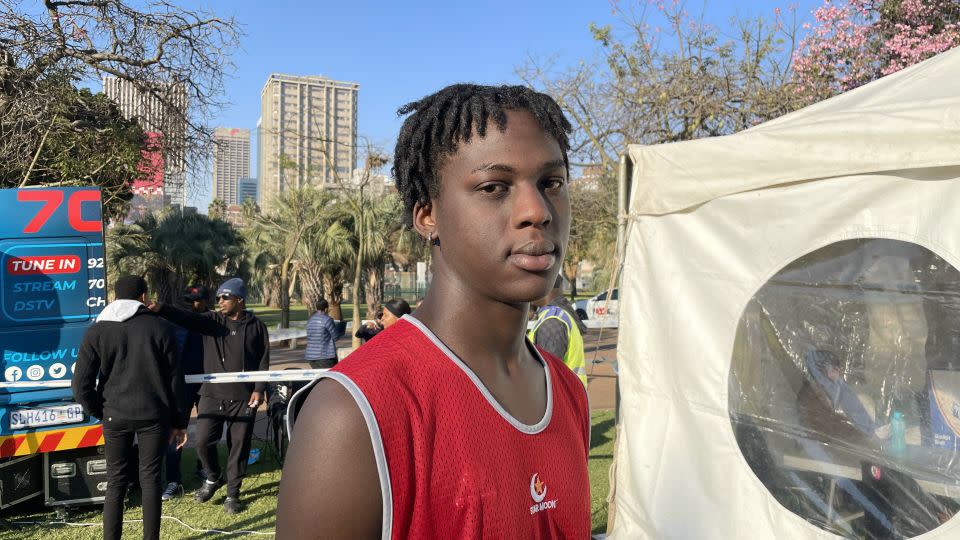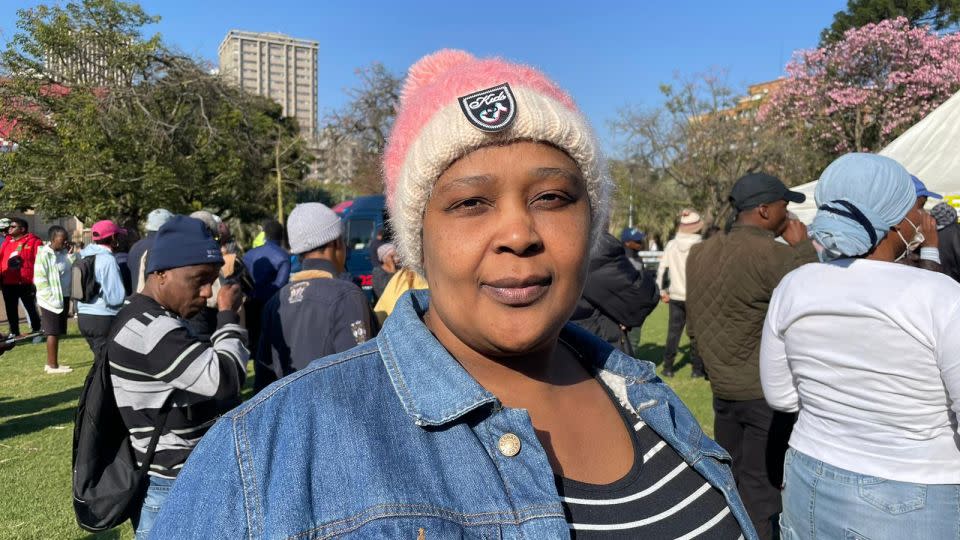South Africans go to the polls in election seen as biggest test yet to ANC’s 30 years in power
Millions of South Africans are voting in what is expected to be the most pivotal general election since the end of apartheid.
For months, polls have shown the ruling African National Congress (ANC) party could lose its majority for the first time since Nelson Mandela led it to power in 1994.
While polling can be challenging in South Africa, most analysts believe that the ANC faces its stiffest challenge yet with a population deeply frustrated by the country’s direction. If support for the ANC drops below 50% for the first time, the party will be forced to enter into a coalition government.
ANC leader and South African President Cyril Ramaphosa called Wednesday’s vote “one of the most important elections in our nation’s history,” while addressing a crowd of thousands at Soweto’s FNB soccer stadium on Saturday.
“Our people will decide whether our country continues moving forward with the ANC towards a better, brighter future or backwards to a terrible past,” Ramaphosa said.
The South African leader, who cast his ballot at a polling station in Soweto, told reporters on Wednesday that he has “no doubt whatsoever” that voters will again trust in the ANC.
“This is the day when South Africa decides, decides on the future of our country, (on) who should lead the government of South Africa, and I have no doubt whatsoever in my heart of hearts that the people will once again invest confidence in the African National Congress to continue to lead this country,” Ramaphosa said.
South Africa is the most unequal country in the world, according to the World Bank. Citizens are also contending with the highest sustained rate of unemployment in the world, rampant corruption, feeble economic growth, crippling power cuts and rising violent crime.
Black South Africans, who make up 81% of the population, are at the sharp end of this dire situation. Unemployment and poverty remain concentrated in the Black majority, in large part due to the failure of public schooling, while most White South Africans have jobs and command considerably higher wages.

Voters in Johannesburg told CNN they headed to vote shortly after polls opened at 7 a.m. local time (1 a.m. ET) on Wednesday, and many expressed their hopes that the country would move in a different direction.
“We want to see the change,” said Sydney Radebe. “This is a rich country but people don’t have anything,” the 66-year-old actor and filmmaker added. “We don’t have land, we don’t have property… you cannot own nothing and say you are ‘free.’”

Radebe was among the first early morning voters at one of the biggest polling stations in Johannesburg. On a crisp morning as the Southern Hemisphere heads into winter, the line of voters gradually began to grow inside Joubert Park.
Events worker Newton Ugboh, 20, was voting for the first time. “I’m looking for change so I came early in the morning,” he said.

Ugboh said that some of his friends didn’t want to vote as “they think things aren’t going to change at all,” but that there are “big issues” facing young people in the country.
The “unemployment rate is crazy,” he said, adding that it’s a “big-time struggle to find work, most of my friends are unemployed.”
Healthcare worker Roselyne Tswakae, 46, said she’s worried about the future of South Africa’s youth and also believes “it’s time for change.”

“Young South Africans were promised that education would be the key to success, they went to university but they are unemployed and often end up getting involved in drugs, drinking, smoking,” she said.
“We are hoping for the light,” Tswakae added.
Land surveyor David Ngobeni, 31, also said “there isn’t much hope” for young people in South Africa. He says unemployment, inflation, crime and corruption are the “big issues facing everyone right now.”
“If you have a job, you are very lucky,” Ngobeni told CNN. He added that he hopes the outcome of this election will lead to inflation going down and boost the economy.
At the very end of a long line in Joubert Park was 40-year-old Ncumisa Xabanisa. She said she has been voting for the same party since 1994 and is very loyal to the ANC. “it’s only one party for me, it’s from home, it’s from my grandmother, I grew up knowing them,” Xabanisa told CNN.
She said the major problem the country is facing is a lack of jobs. “Some of us we went to school, we graduated but we have the certificates like it’s a display. It’s hurting.”
The mother-of-two added that she is educated but is currently sitting at home most of the time, and sells plastic food containers to make a living.
There are 52 parties on this election’s national ballot, including new parties formed by previous ANC members such as former President Jacob Zuma’s uMkhonto weSizwe Party (MK).
Zuma was forced to resign as president in 2018 and served a brief stint in jail in 2021 for contempt of court. The 82-year-old was barred from running for parliament last week after the country’s Constitutional Court ruled that five years must have elapsed since the completion of his sentence. However, his party will still contest the election and his face will remain on the ballot.
Capping off a heated few months of election campaigning, many of the largest parties held their final rallies this weekend, including the Democratic Alliance (DA), the official opposition party.
“On Wednesday, the ANC will lose the outright majority it has abused for decades to subject the people of this country to unemployment, corruption and misrule… we close the ANC chapter of our history,” DA leader John Steenhuisen told supporters in the town of Benoni, east of Johannesburg. The DA has formed a coalition bloc with smaller opposition parties called the Multi-Party Charter.
This is the seventh general election South Africa has held since the end of white minority rule 30 years ago. A record 27.79 million people are registered to vote – the highest number to date, according to the Independent Electoral Commission (IEC.)
The country’s electoral commission (IEC) said that, by 11 a.m. in South Africa, a “significant majority” of voters had already cast their ballots, as lines to vote had formed before the polls opened.
“This, we think, is testament to the enthusiasm of South Africans to record their political choice,” the IEC’s deputy CEO Masego Sheburi added during a briefing at the National Results Center.
Sheburi said that some voting stations opened late, but by midday “good progress” was made with “minimal incidences” across the country. One of the issues some polling stations faced was late delivery of ballot papers, mainly in the Johannesburg area, according to the IEC.
For more CNN news and newsletters create an account at CNN.com


